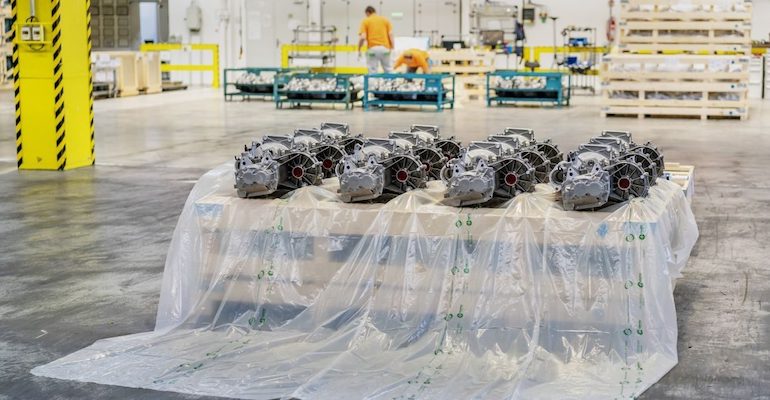Corn starch-based film replaces approximately 500 kg of petroleum-derived plastic film each month
September 14, 2020

Škoda Auto is testing biodegradable film for the packaging of vehicle components shipped to the Indian plant in Pune as part of a pilot project. The film protects the parts as effectively as conventional plastic film. Supplied by Cortec, the anti-corrosion Eco-Corr Film is 40% bio-based.
After use, the corn starch-based biodegradable film can be composted. Three to six months later, the film goes on to help improve the soil at the logistics park in Pune. Employees at the CKD centre in Škoda Auto’s main plant are implementing this packaging concept, saving around 500 kg of conventional plastic film each month.
David Strnad, Head of Brand Logistics at Škoda Auto, emphasized, “At Škoda Auto we take a holistic approach to continuously improving our ecological footprint. To this end, we systematically encourage our staff to develop and implement innovative concepts. The compostable packaging for our component deliveries to India is a concrete example of this. Together with our colleagues at the Pune site, we are currently successfully testing the use of corn starch-based film. This has enabled us to halve the amount of conventional plastic packaging used on parts delivered there while providing the same level of protection.”
In order to effectively reduce the amount of plastic film required to wrap the components for shipping to Pune, the Škoda logistics department was specifically looking for biodegradable alternatives. A compostable film was subsequently put to the test at the CKD centre in Mladá Boleslav. Several sample consignments were then checked to see whether they met the strict requirements for shipping overseas in containers. And indeed, quality control on the shipment’s arrival in Pune confirmed that the components neither showed any signs of damage nor traces of corrosion.
To assess whether the packaging could be composted as intended, logistics staff built composters on site using recycled material. In addition to the film, the composters were also filled with other biowaste. Just six months later, the film had largely biologically decomposed. Škoda Auto is now testing the innovative film’s suitability for everyday use on a larger scale. July 2020 saw the launch of a pilot project for this purpose, which will initially run until June 2021.
The composted packaging goes on to be used in Pune as organic fertilizer for the trees in the logistics park among other things. Since March 2019, employees from the logistics department and visitors alike have had the opportunity to plant a tree in front of the factory gates, thus transforming former wasteland into a park.
About the Author(s)
You May Also Like




